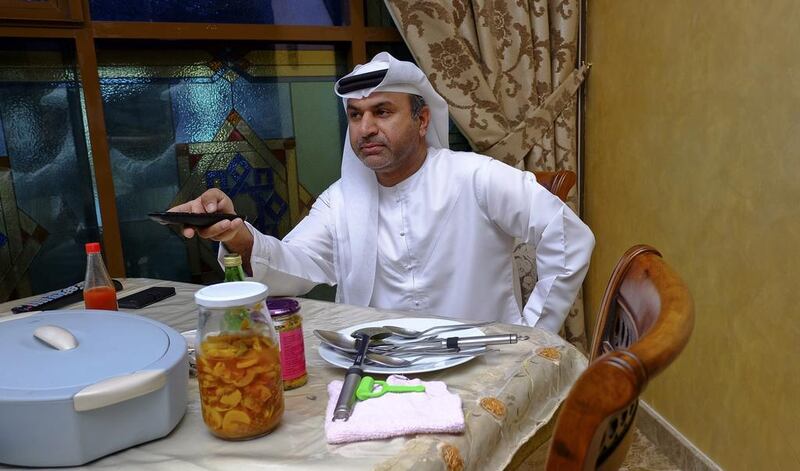DUBAI // Emirati Soad Al Harmoodi does not miss any of her favourite television soap operas. But it is not Arabic shows that keep her glued to the screen – it is Hindi series and the latest Bollywood releases.
“I like watching Hindi films and soaps,” said the 26-year-old housewife. “There is comedy, action and romance – all in one movie. I do watch some English and Arabic films and series, but prefer the Hindi movies.
“The acting is not so good in Arabic films. In Indian films, from a two-year-old baby to an old man, everyone knows how to act.
“Besides, Arabic films always have the same story. It is usually about a family and the side-effects of marriage.”
Mrs Al Harmoodi is not alone. The rising number of viewers in the Middle East and North Africa has prompted television stations in the UAE and across the region to dub popular Indian soaps and films into Arabic.
“Zee Aflam was the first Bollywood channel in Arabic to be launched, in 2008,” said Manoj Mathew, Zee Network’s senior vice president and business head for the Mena region, Pakistan and Turkey.
“Today there are 35 channels that show Bollywood and Indian content in Arabic in the region. Initially, it used to be Emiratis who used to watch Hindi films, but now there are many Arab expatriates from Egypt and North Africa as well.”
The network’s Zee Alwan shows Indian drama series in Arabic, while Zee Film Hindi is a general-entertainment channel broadcast with Arabic subtitles.
Mr Mathew said cultural similarities was one of the reasons for the channels being such a hit with Middle Eastern viewers.
“There was always a connection between Hindi and Urdu languages and the people here. People speak and understand these languages. There is also a lot of trading connection. They are already exposed to the culture. Middle Eastern and Indian family values and cultures match, unlike the Middle East and Hollywood.”
Saeed Al Musallam, an Emirati entrepreneur and a die-hard Bollywood fan, couldn’t agree more.
“We are surrounded by Indians here,” said Mr Al Musallam, 47, who went to school in Nasik, India, as well as in the UAE. “We are so inter-related. Our relationship with India and Indians dates back 700 years, if not more. Indians have been settled here for many years. It was always Indian movies that were shown here, not the English movies.”
He said he rarely watched Arabic cinema.
“I don’t relate to Arabic films from Egypt. I don’t know the actors as well. India is a two-and-a-half-hour flight from here. I relate to Indians more than to Arabs from Egypt. And Egyptian cinema doesn’t have as much to show as Indian cinema does. The Bollywood films are funny and I go to watch them to have a good time.”
Although he prefers to watch the films in Hindi, his wife watches the Arabic versions.
“My wife watches the TV series in Arabic. More than half the nation watches these episodes. It is not just here, but people in Bahrain, Qatar, Saudi and Oman also like them.
“I prefer watching in Hindi because the dialogue, expression and the nuances are lost in Arabic.”
MBC Bollywood was launched last year to cater to the growing interest in the region.
“MBC Group is a Pan Arab conglomerate, and, therefore, we target all Arabs across the Mena region,” an MBC official said.
“Each of our 14 channels has a more specific target audience and clearly MBC Bollywood is for the Arab viewers in Mena.”
pkannan@thenational.ae






